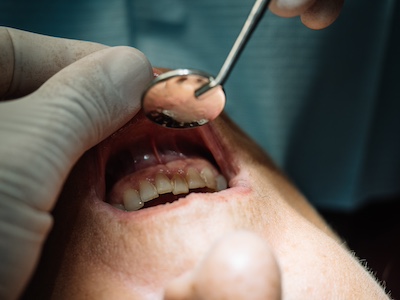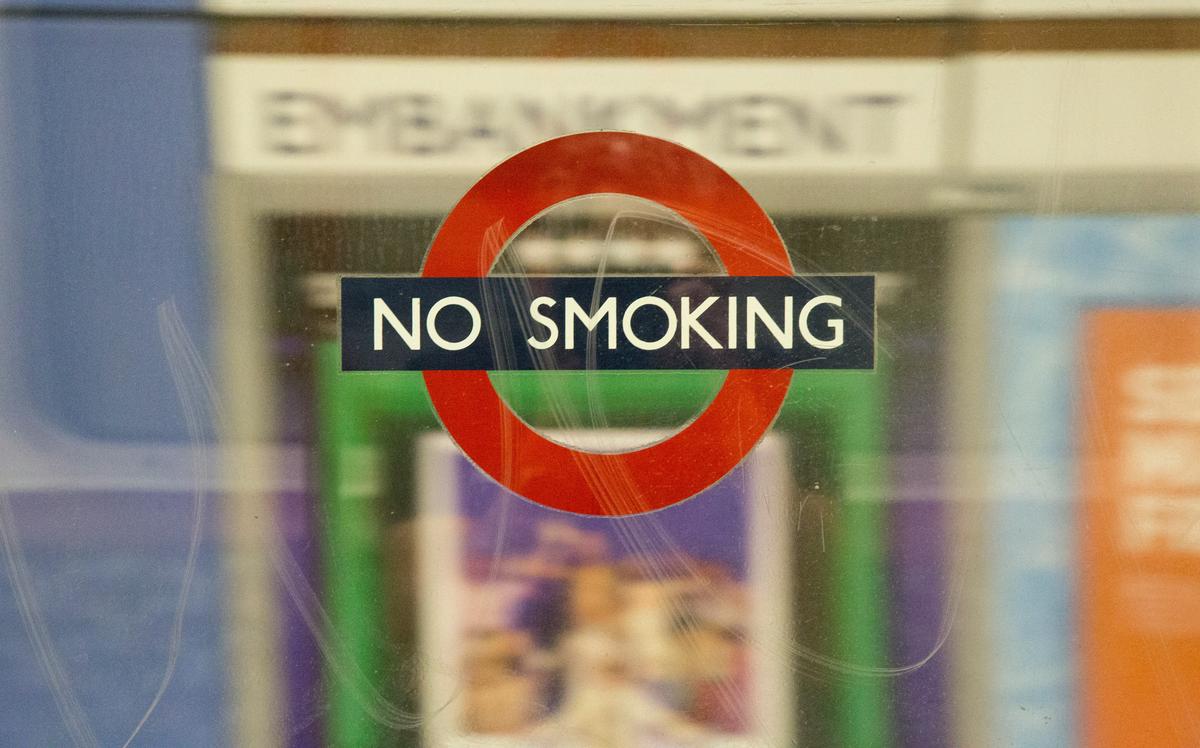Gum Disease and Smoking
Smoking, a habit deeply ingrained in society, does more than merely stain your teeth or cause bad breath; it strikes at the very foundation of your oral health, increasing the risk and severity of gum disease.
When you smoke, the chemicals released affect your gums, impairing blood flow to the tissue and depriving your gums of essential nutrients and oxygen1. Coupled with a compromised immune system, a smoker’s ability to fight off bacterial infections decreases.
As a result, the gums become more vulnerable and prone to bacterial plaque, leading to an accelerated progression of gum disease. This condition, starting as gingivitis, can quickly escalate to periodontitis, posing a risk of tooth loss that is twice as high compared to non-smokers2.
What makes this issue more concerning is smoking’s ability to mask the early warning signs of gum disease, delaying diagnosis and treatment. Symptoms like bleeding or tender gums might be less noticeable, allowing the disease to progress unchecked.
Furthermore, treatments for gum disease may be less effective for smokers, adding layers of challenge to an already complex issue. It’s a silent battle between personal habits and oral health, where the stakes involve not just the aesthetics of your smile but the very integrity of your oral cavity.
While the pleasure of smoking might be short-lived, the detrimental effects persist, leaving lasting impacts on one’s dental well-being. Understanding the serious consequences of smoking illuminates the path to mitigation and, ultimately, cessation.
It’s a reminder that prioritizing health can help maintain the brilliance of our smiles and the vitality of our gums.
Stained Teeth and Bad Breath
When considering the visible impacts of smoking, teeth staining is exceptionally common, a consequence of the nicotine and tar found in cigarettes. These chemicals efficiently discolor teeth, transforming them from a natural white to a dull yellow in a short period.
For heavy smokers, this can escalate, resulting in almost brown teeth after years of smoking. This physical alteration not only affects one’s self-esteem but also reflects the internal damage occurring within.
Moreover, the persistence of bad breath among smokers is not merely a temporary inconvenience; it is a lingering issue that deeply affects social interactions and self-confidence. The substances released during smoking adhere to the mouth’s surfaces, contributing to an unfavorable oral environment.
These conditions foster the growth of bacteria, further exacerbating bad breath. Additionally, smoking diminishes saliva production, allowing particles and bacteria to remain in the mouth longer, reinforcing the cycle of bad breath. These effects, coupled with the greater susceptibility to periodontal disease, highlight the extensive impact of smoking beyond the initial draw of a cigarette, leading to persistent issues.

Oral Cancer Risk
Smoking, with its numerous hazardous compounds such as nicotine, tar, and carcinogens, significantly elevates the risk of oral cancer. These substances directly assault the delicate tissue of the oral cavity, causing changes at a cellular level that can lead to malignancies.
The carcinogens in tobacco can trigger mutations in the DNA of cells within the mouth, potentially causing uncontrolled cell growth and tumor formation.
Oral cancer, which includes cancers of the lips, tongue, cheeks, floor of the mouth, hard and soft palate, sinuses, and pharynx (throat), can be life-threatening if not diagnosed and treated early3.
Moreover, smokers tend to have a compromised immune system, reducing the body’s capability to combat harmful mutations and remove cells that could turn cancerous.
This impaired immune response means the harmful substances from smoking are more likely to cause damage, and the body is less prepared to repair and resolve this harm.
The visible warning signs of oral cancer, such as sores, lumps, or discolorations in the mouth, can be obscured or considered as ‘normal’ for a smoker due to the frequent irritation caused by smoking, further increasing the risk.
Additionally, the combination of smoking and practices such as heavy alcohol consumption further exacerbates the potential for developing oral cancer4. Recognizing these risks underscores the importance of dental health checks for early detection and the invaluable benefit of quitting smoking.
Impact of Smoking on Oral Surgery Recovery
Recovering from oral surgery can be challenging, but for individuals who smoke, the healing journey may present additional hurdles. Smoking significantly hampers the body’s natural ability to heal, prolonging recovery times and increasing the risk of complications.
Nicotine, found in tobacco products, narrows blood vessels, impairing blood flow5. This reduction in circulation deprives the surgical site of essential nutrients and oxygen, materials crucial for the healing process.
Additionally, smoking can degrade the protective clot that forms over a surgery site, which aids in tissue regeneration. When this clot is compromised, the risk of developing a painful condition known as dry socket increases, where exposed nerves and bone result in severe pain.
The impact of smoking extends beyond just the physical impediments to healing. The smoke itself introduces chemicals to the oral environment, creating conditions favorable for bacterial growth. These bacterial colonies can invade surgery sites, leading to infections that not only impede healing but may also spread to adjacent areas, causing further oral health issues.
The immune system, already engaged in fighting the effects of smoking, finds itself overtaxed, struggling to protect and regenerate the tissues affected by the surgery6. It’s important for anyone planning to undergo oral surgery to consider these ramifications seriously.
Quit Smoking for Better Oral Health
Engaging in conversations with healthcare providers about smoking cessation methods can be a pivotal step toward ensuring a smoother, more effective recovery period.
Adopting a proactive approach toward quitting smoking ahead of oral surgery can significantly enhance the body’s resilience and capacity to heal, marking a crucial step towards improved oral health and overall well-being.

- Jindal SK, Aggarwal AN, Chaudhry K, et al. Tobacco smoking in India: prevalence, quit-rates and respiratory morbidity. Indian J Chest Dis Allied Sci. 2006;48(1):37-42.
- Dietrich T, Walter C, Oluwagbemigun K, et al. Smoking, Smoking Cessation, and Risk of Tooth Loss: The EPIC-Potsdam Study. J Dent Res. 2015;94(10):1369-1375.
- Warnakulasuriya S. Global epidemiology of oral and oropharyngeal cancer. Oral Oncol. 2009;45(4-5):309-316.
- Pelucchi C, Gallus S, Garavello W, Bosetti C, La Vecchia C. Cancer risk associated with alcohol and tobacco use: focus on upper aero-digestive tract and liver. Alcohol Res Health. 2006;29(3):193-198.
- Sørensen LT. Wound healing and infection in surgery: the pathophysiological impact of smoking, smoking cessation, and nicotine replacement therapy: a systematic review. Ann Surg. 2012;255(6):1069-1079.
- Javed F, Al-Rasheed A, Almas K, Romanos GE, Al-Hezaimi K. Effect of cigarette smoking on the clinical outcomes of periodontal surgical procedures. Am J Med Sci. 2012;343(1):78-84.








